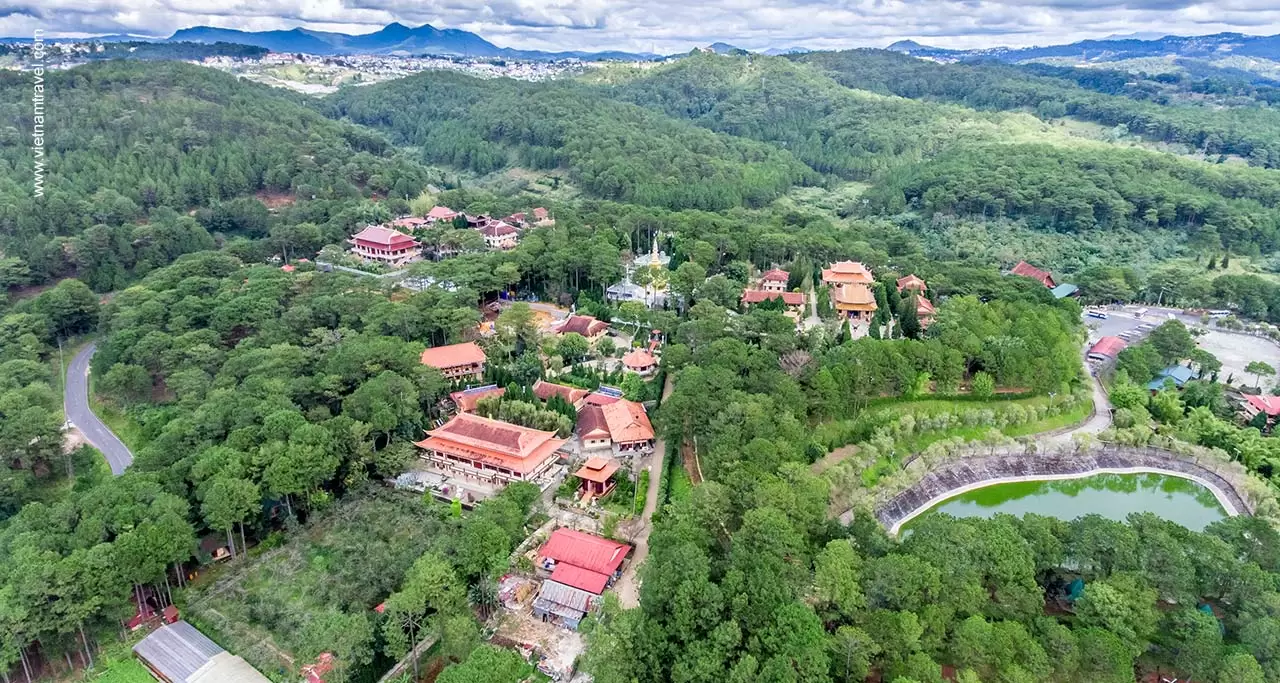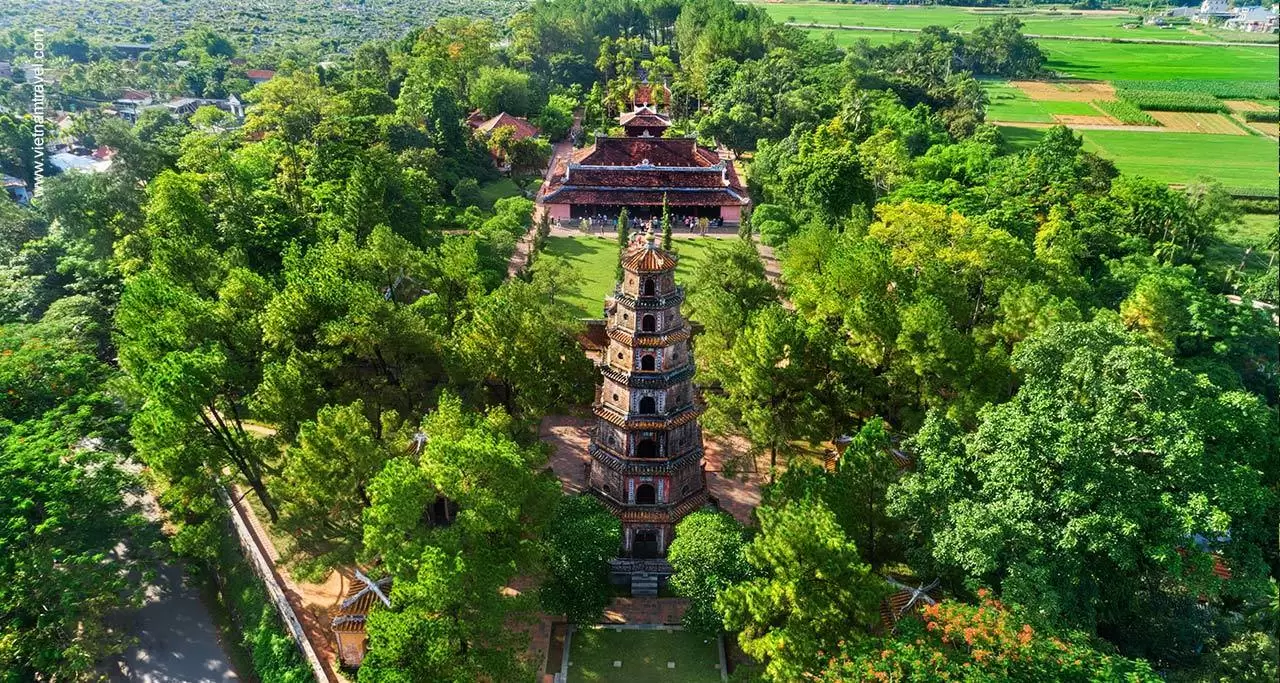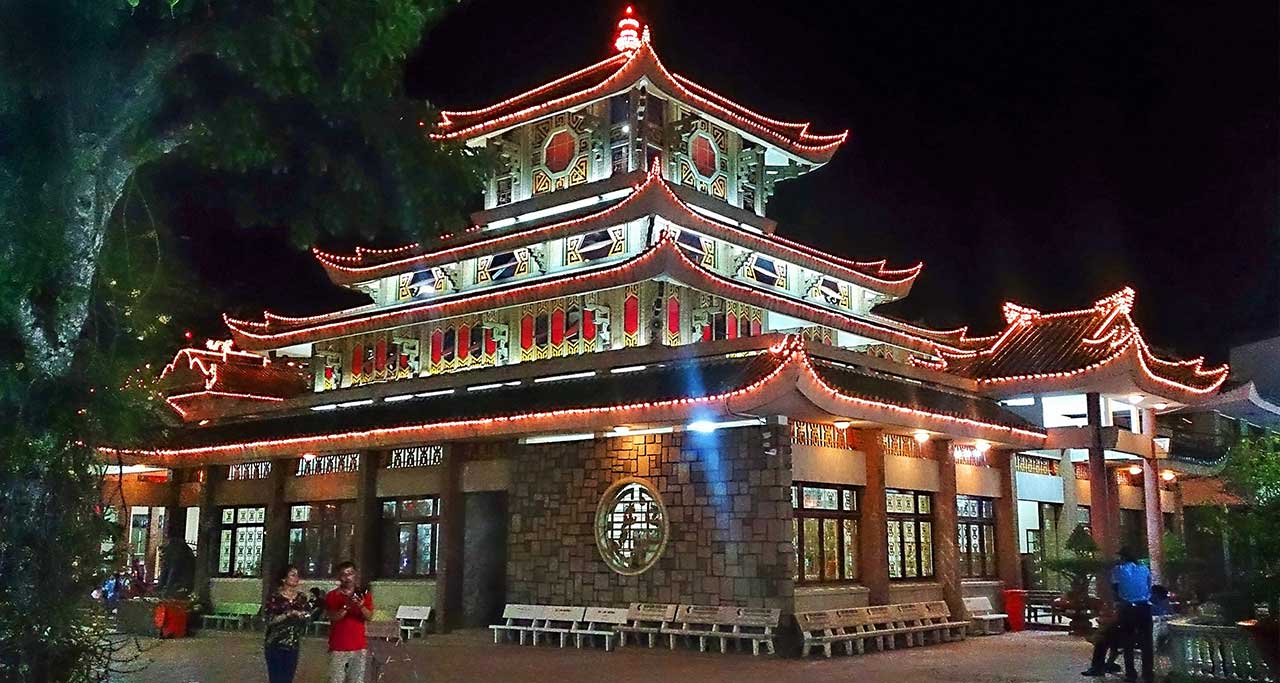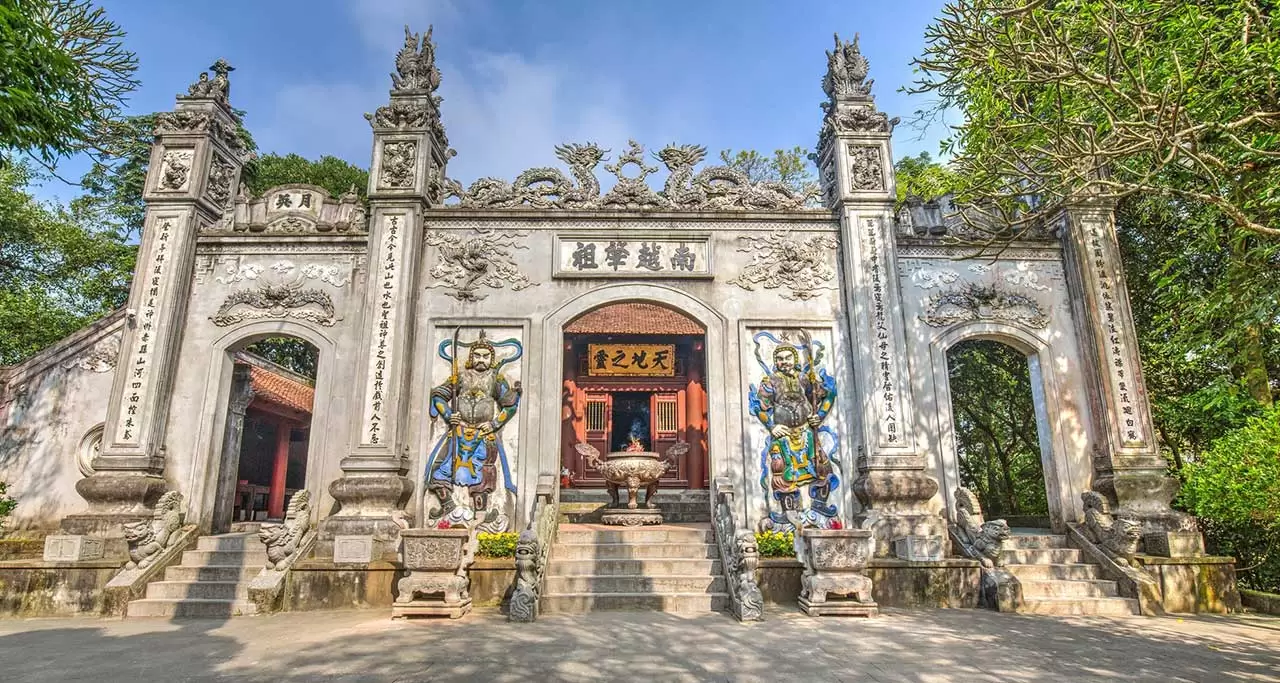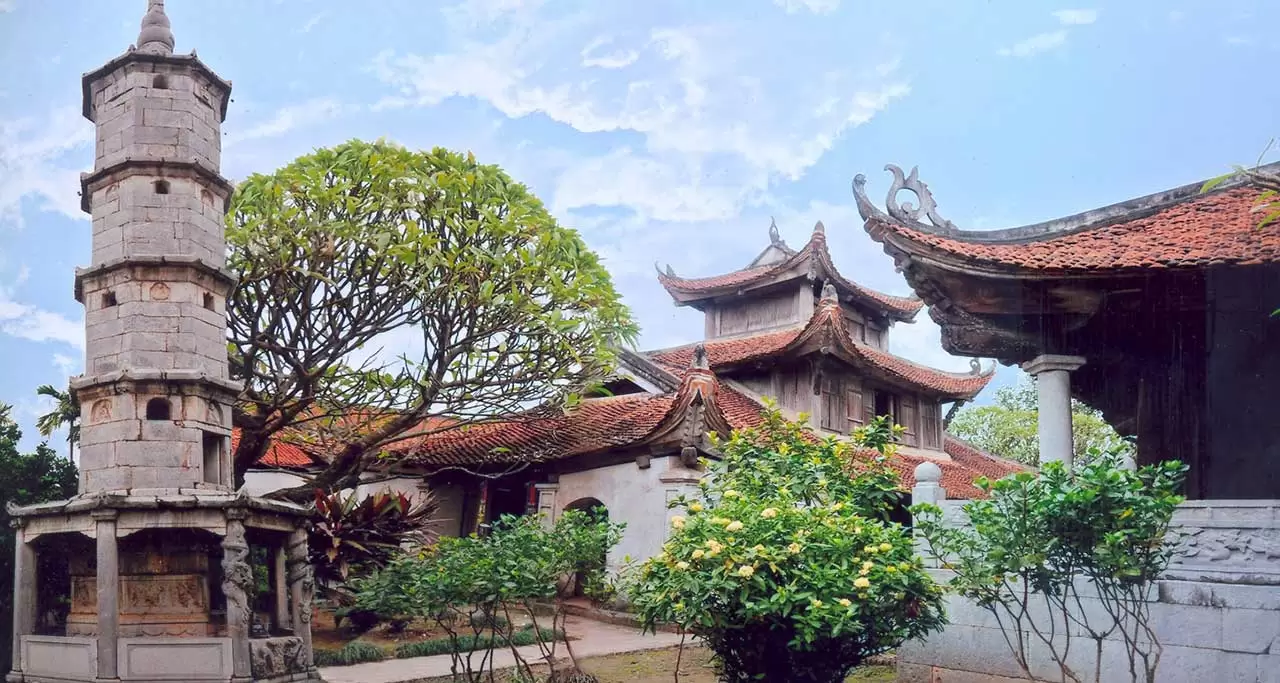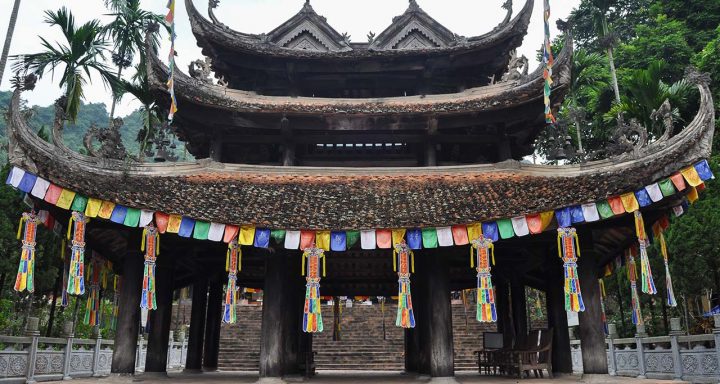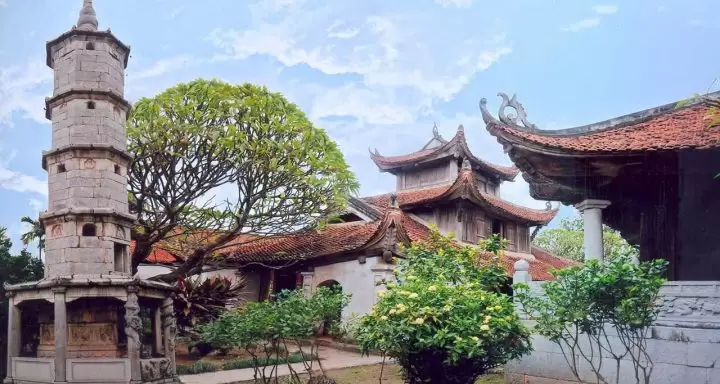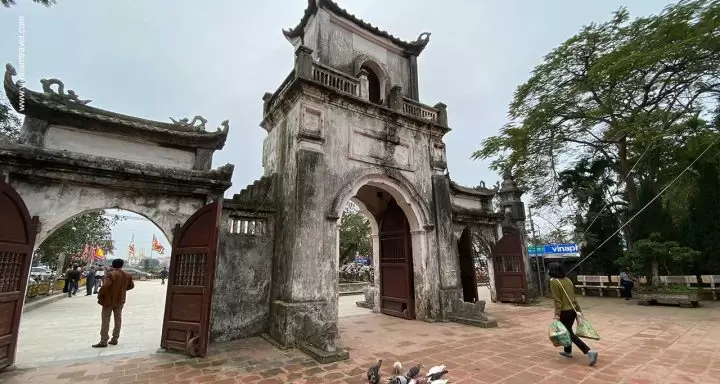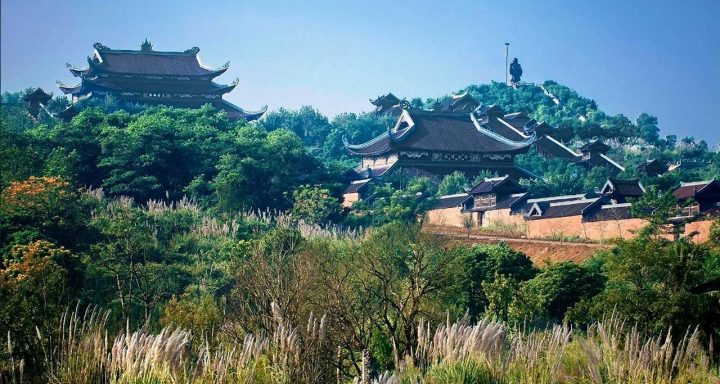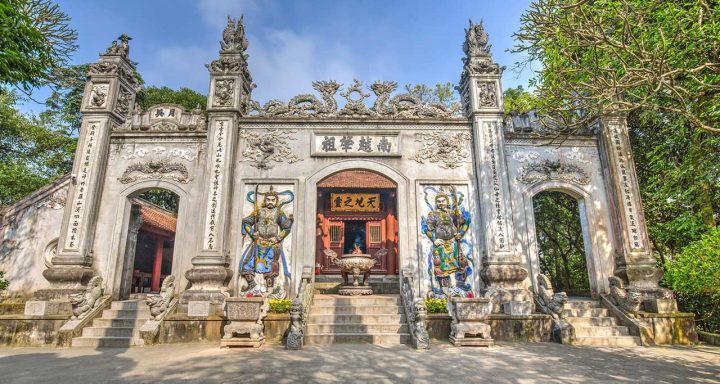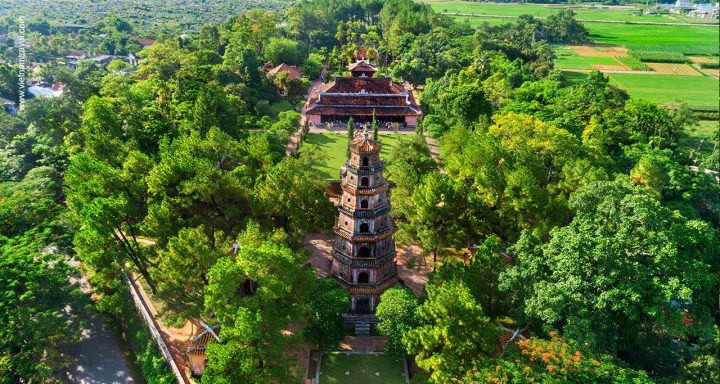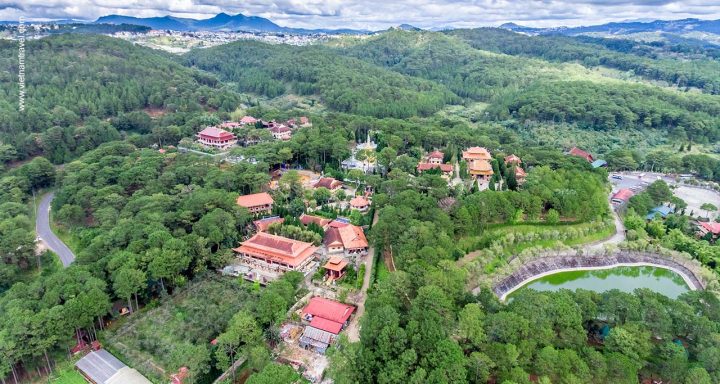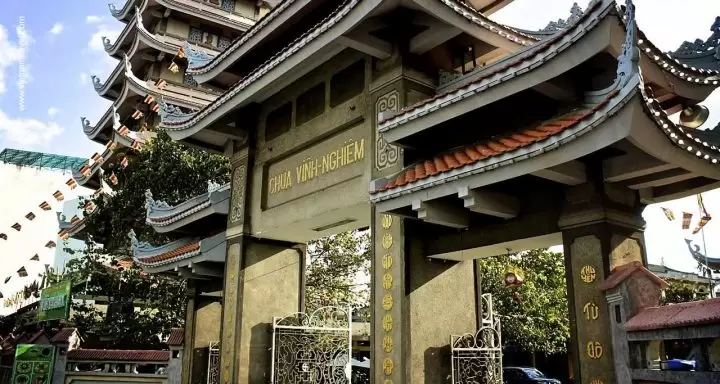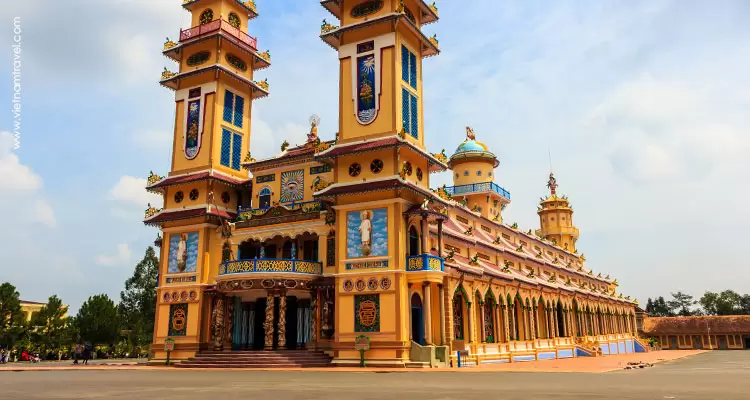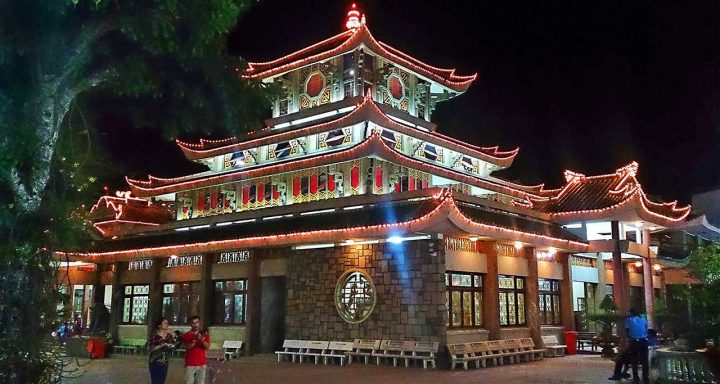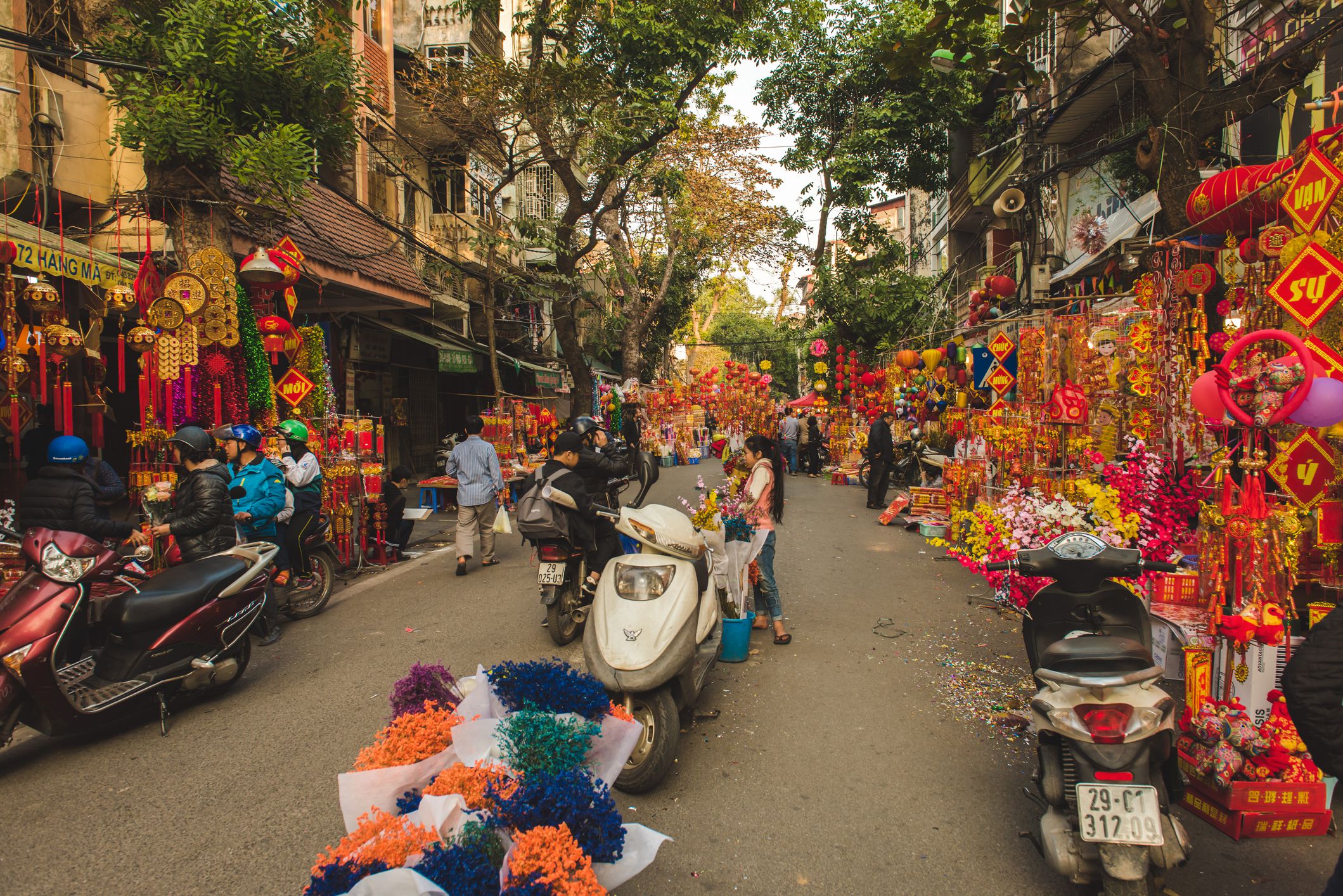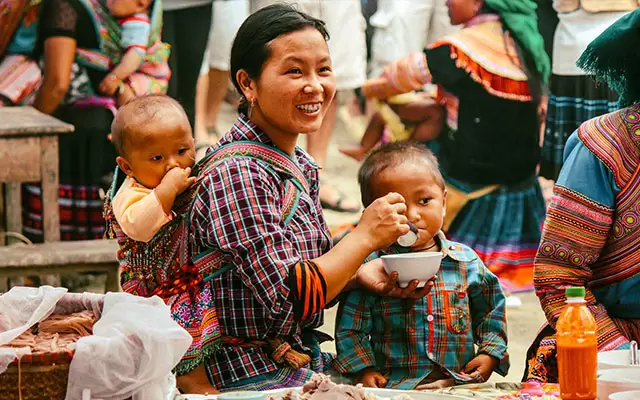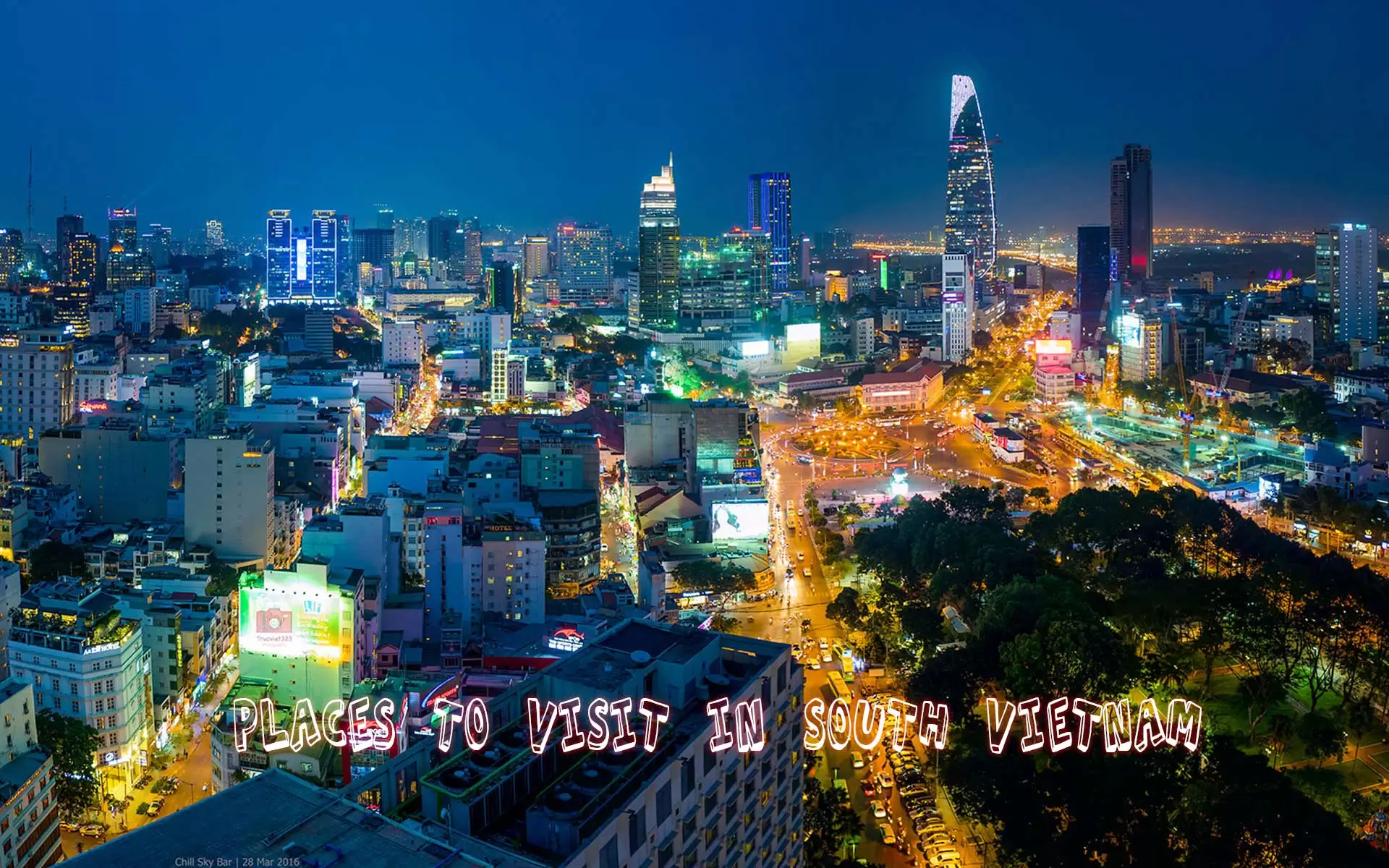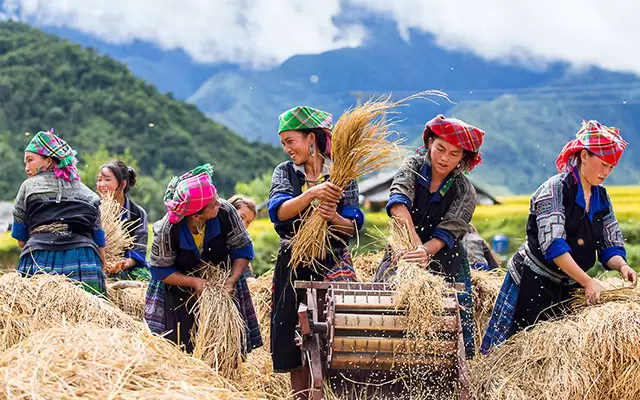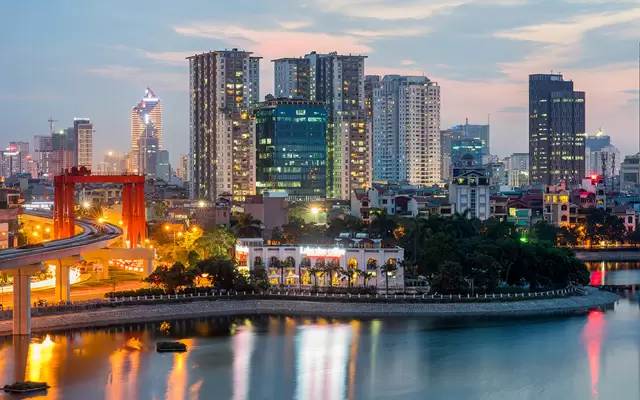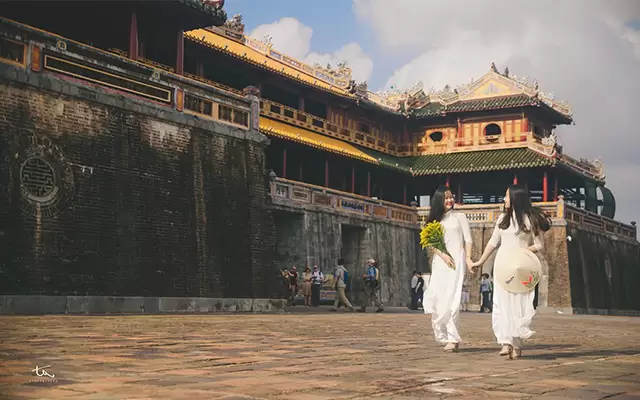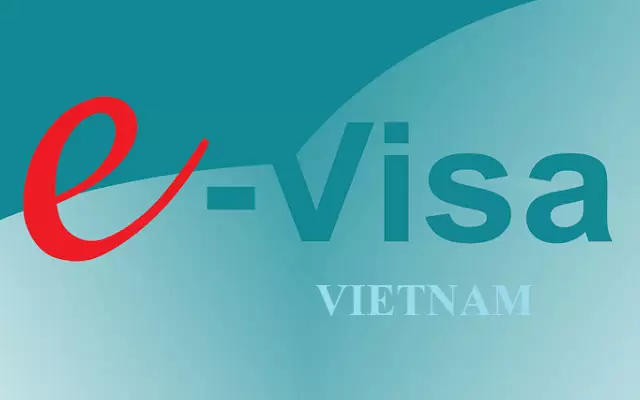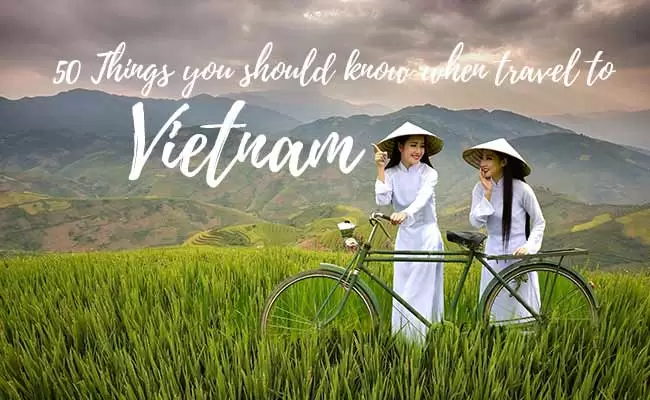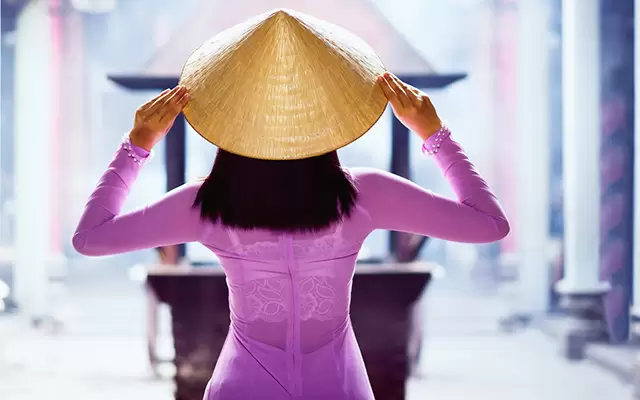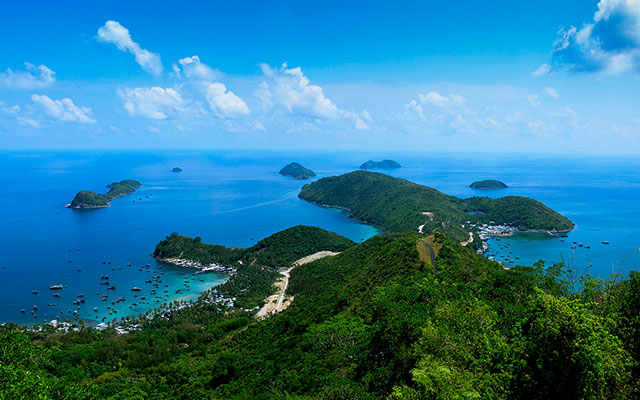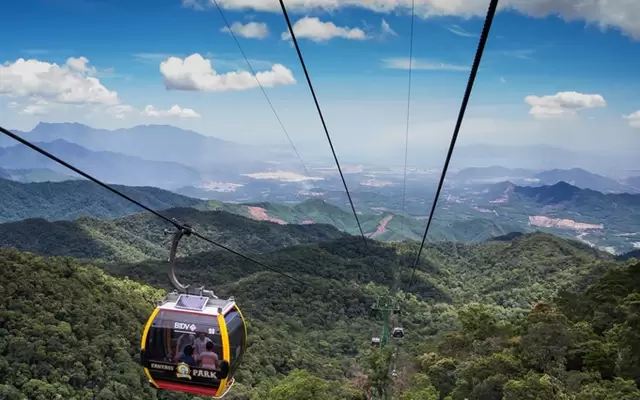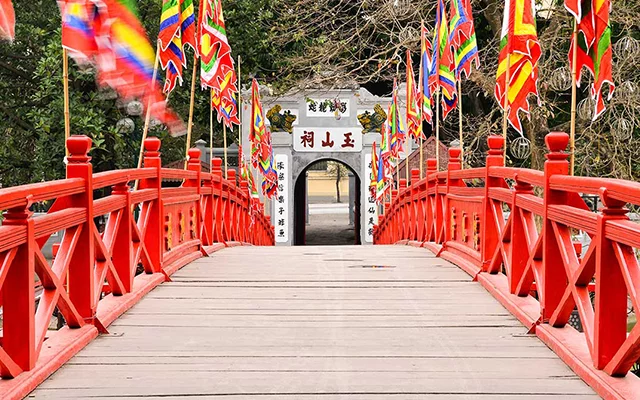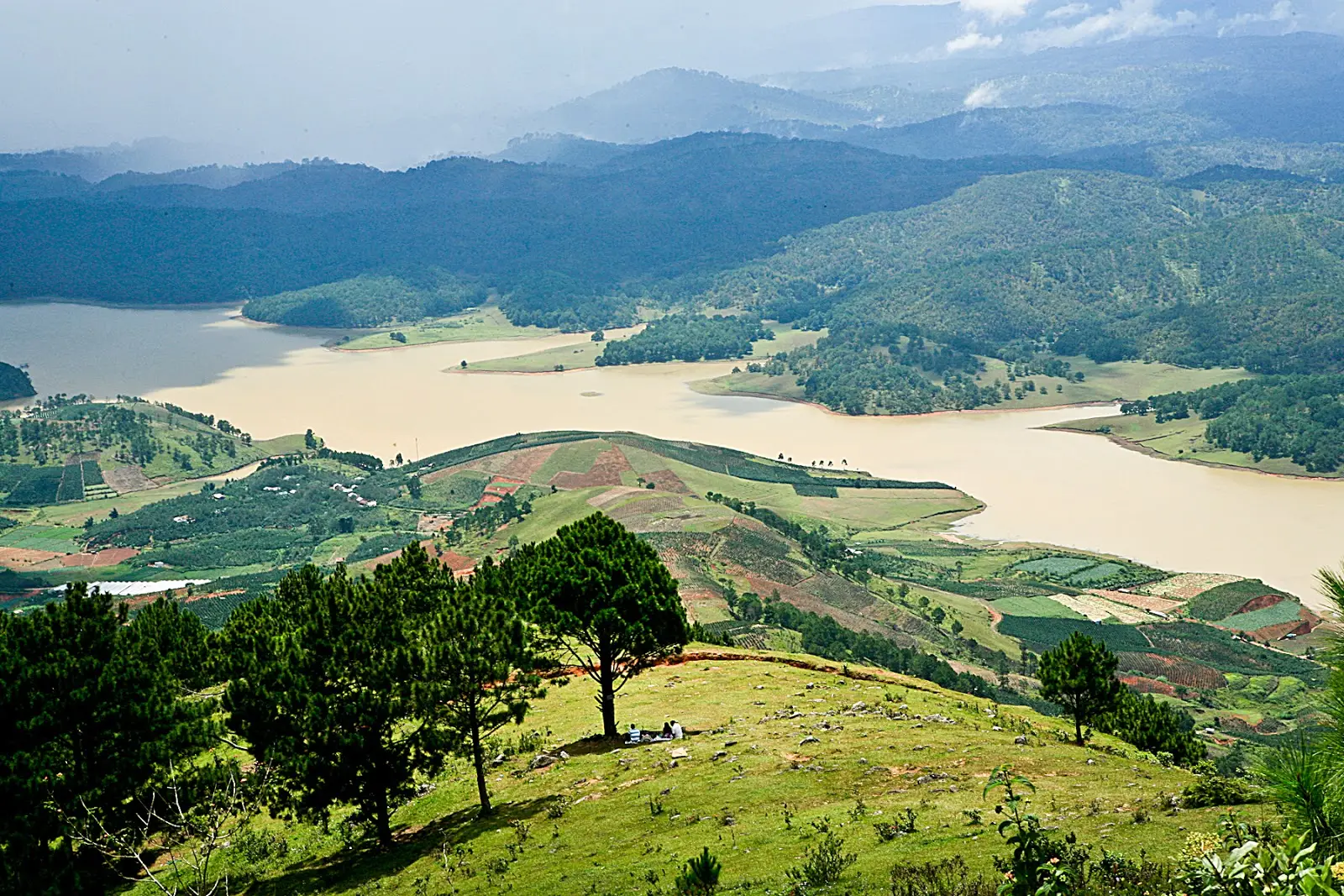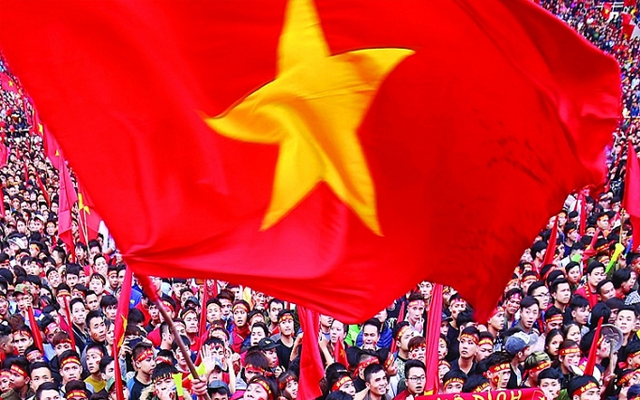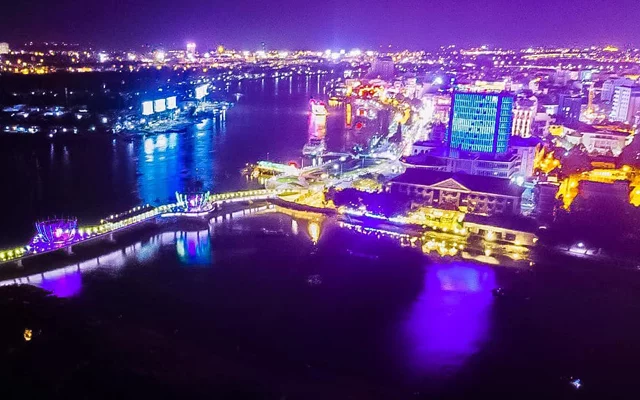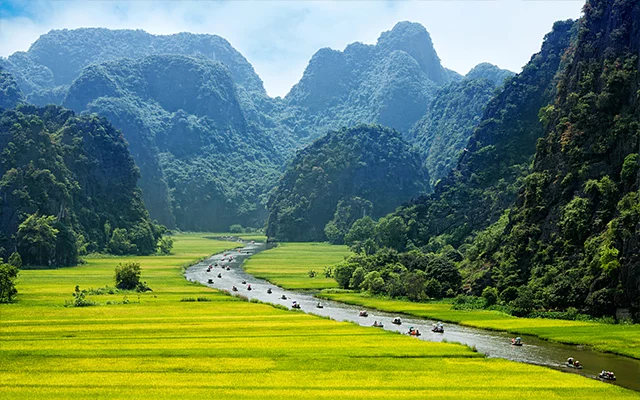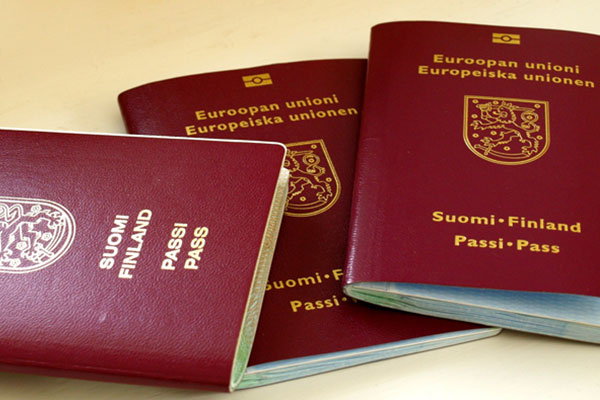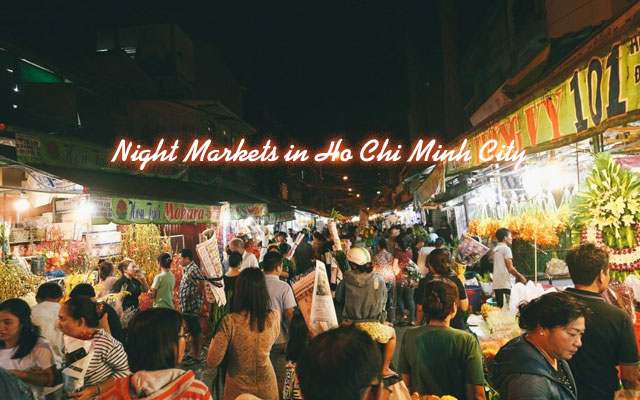TOP 15 Famous Pagoda & Temples in Vietnam
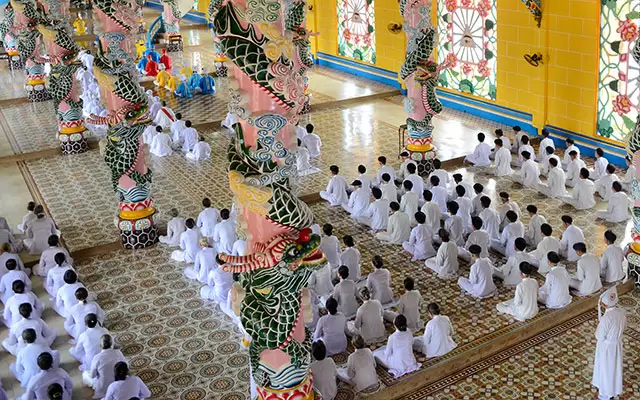
Vietnam temples plays an important role in spiritual life of local people. Temples in Vietnam is dedicated to the Saints of the Nation or the Heroes who were respected as the Saint. We listed the most famous temples that you could able to access in Vietnam with brief information and updated photos. During your Vietnam visit, you should visit these sites if your time is permitted to get to know more about Vietnam Culture and religious life in this Communist country.
Table of Contents
- 1. Quan Thanh Temple, Hanoi
- 2. Tran Quoc Pagoda, Hanoi
- 3. Temple of Literature, Hanoi
- 4. Ngoc Son Temple, Hanoi
- 5. Perfume Pagoda, Ha Tay, Hanoi
- 6. But Thap Pagoda, Bac Ninh
- 7. One Pillar Pagoda, Hanoi
- 8. Tran Temple in Nam Dinh
- 9. Bai Dinh pagoda, Ninh Binh
- 10. Hung Temple, Phu Tho
- 11. Thien Mu Pagoda, Hue
- 12. Truc Lam Zen Monastery
- 13. Vinh Nghiem Pagoda, HCM City
- 14. Cao Dai Temple, Tay Ninh
- 15. Ba Chua Xu Temple, An Giang
1. Quan Thanh Temple, Hanoi
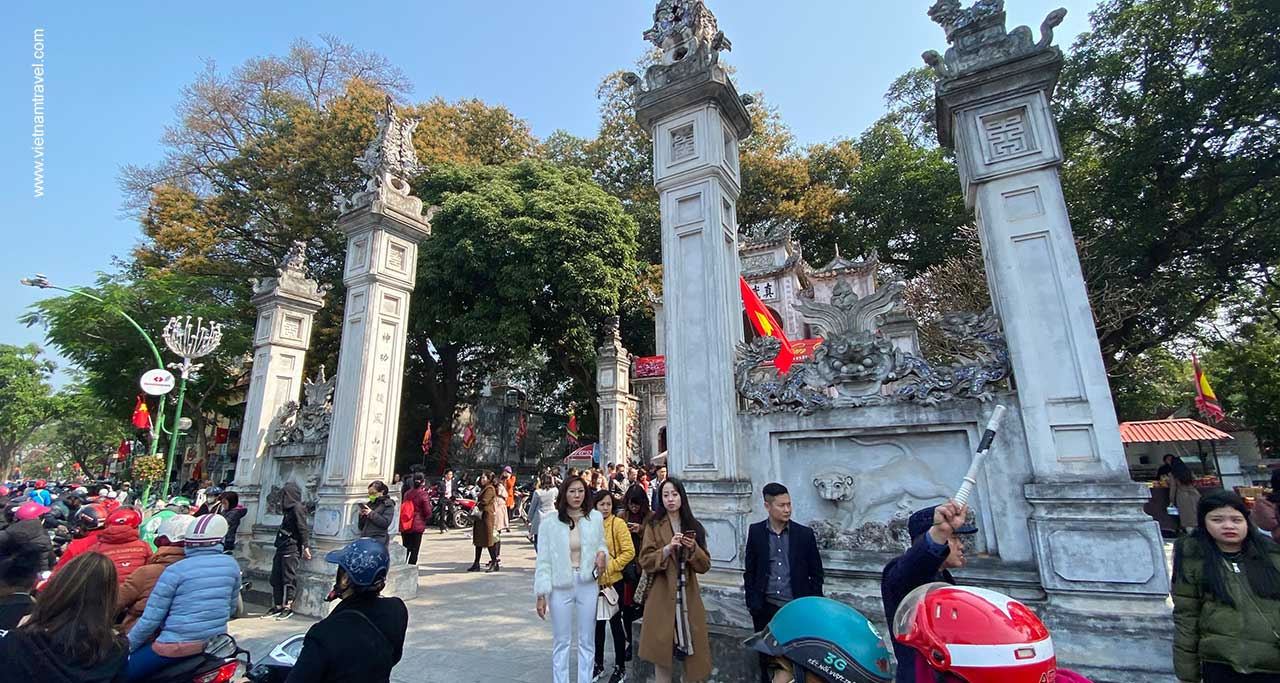
Quan Thanh Temple, Hanoi
Located by West lake Hanoi, Quan Thanh Temple is worshiping Tran Vu guardian spirit – one of four guardian spite in protect Thang Long (later is Hanoi) in the early time. In 1677 during the reign of King Le, artisans from the nearby Ngu Xa village offered the Temple a very large statue of Tran Vu in black bronze, which remains today. This statue is measured 3.96 metres (13.0 ft) in height, weight around 3,600 kilograms (7,900 lb) and depicts Tran Vu as a deity with his two symbolic animals, the serpent and the turtle. Considered a masterpiece of Vietnamese bronze casting and sculpture, it is the second biggest bronze statue in Vietnam. This artwork is evidence of the advanced technical standard of bronze casting and sculpture of Vietnamese artisans in the 17th century. Legend has it that Quan Thanh Temple was established during the reign of Emperor Ly (reigned 1010–1028 . Nowadays it become one of the leading tourist attraction in Hanoi.
2. Tran Quoc Pagoda, Hanoi
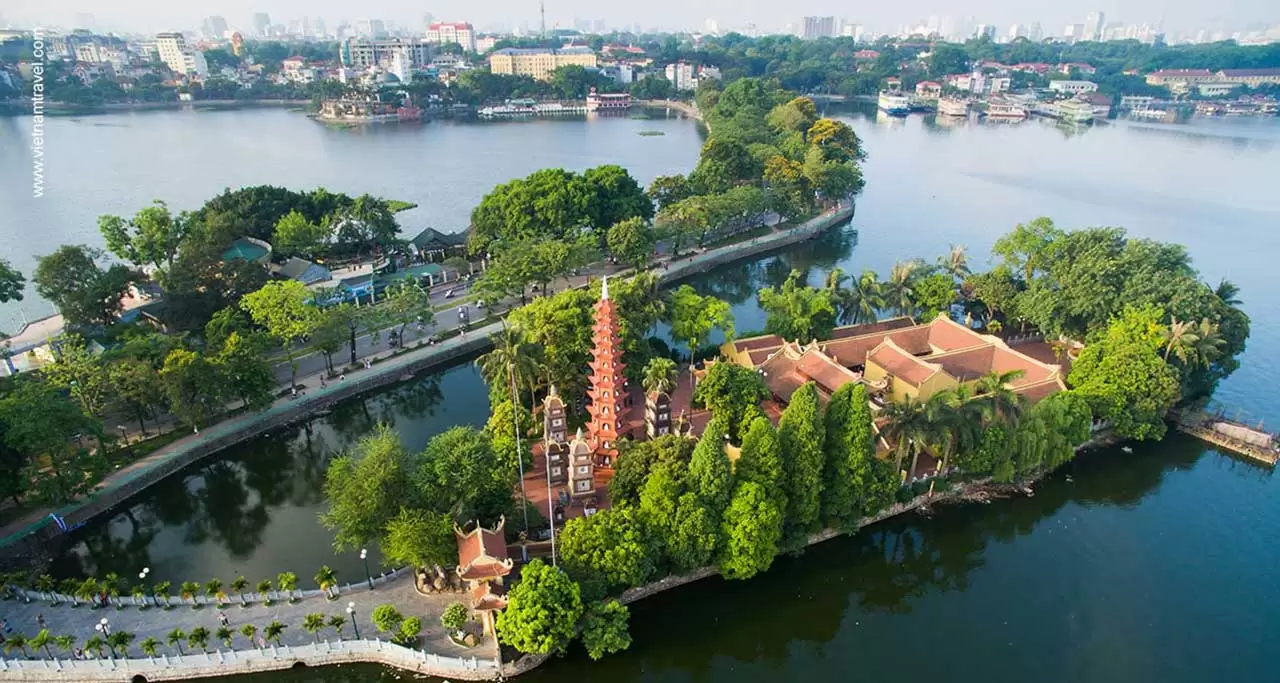
Tran Quoc Pagoda, Hanoi
This is the oldest Buddhist temple in Hanoi, is located on a small island near the southeastern shore of Hanoi’s West Lake (Ho Tay)
Tran Quoc Pagoda was originally constructed in the sixth century during the reign of Emperor Lý Nam Đế (from 544 until 548), thus giving it an age of more than 1,450 years. When founded the temple was named Khai Quoc (National Founding) and was cited on the shores of the Red River, outside of the Yen Phu Dyke. When confronted with the river’s encroachment, the temple was relocated in 1615 to Kim Ngu (Golden Fish) islet of Ho Tay (West Lake) where it is now situated. A small causeway links it to Thanh Nien road. There are more local people visit the pagoda in the first and 15th of lunar month. This is one of most famous temple in Hanoi and the must see in the City Tour Itinerary of Hanoi.
3. Temple of Literature, Hanoi
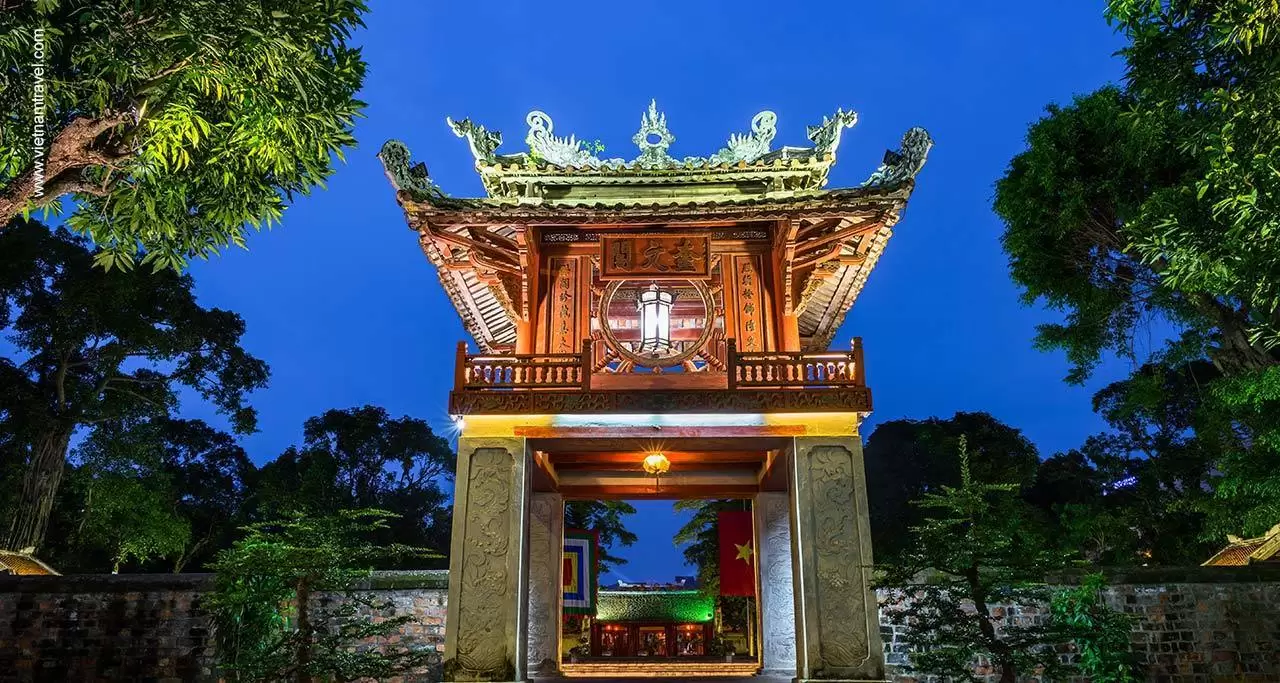
Temple of Literature, Hanoi
Van Mieu was dedicated to Confucius in Hanoi. The temple also hosts the Imperial Academy – Vietnam’s first national university. The temple was built in 1070 at the time of Ly Emperor. It is one of several temples in Vietnam which is dedicated to Confucius, sages and scholars. The temple is located to the south of the Imperial Citadel of Thang Long. The various pavilions, halls, statues and stelae of doctors The temple was reconstructed during the Trần dynasty (1225–1400) and in the subsequent dynasties. For nearly two centuries, despite wars and disasters, the temple has preserved ancient Vietnamese temple architecture of many dynasties as well as precious relics. Major restorations have taken place in 1920, 1954 and 2000. The Temple is an important stop when visit Hanoi City.
4. Ngoc Son Temple, Hanoi
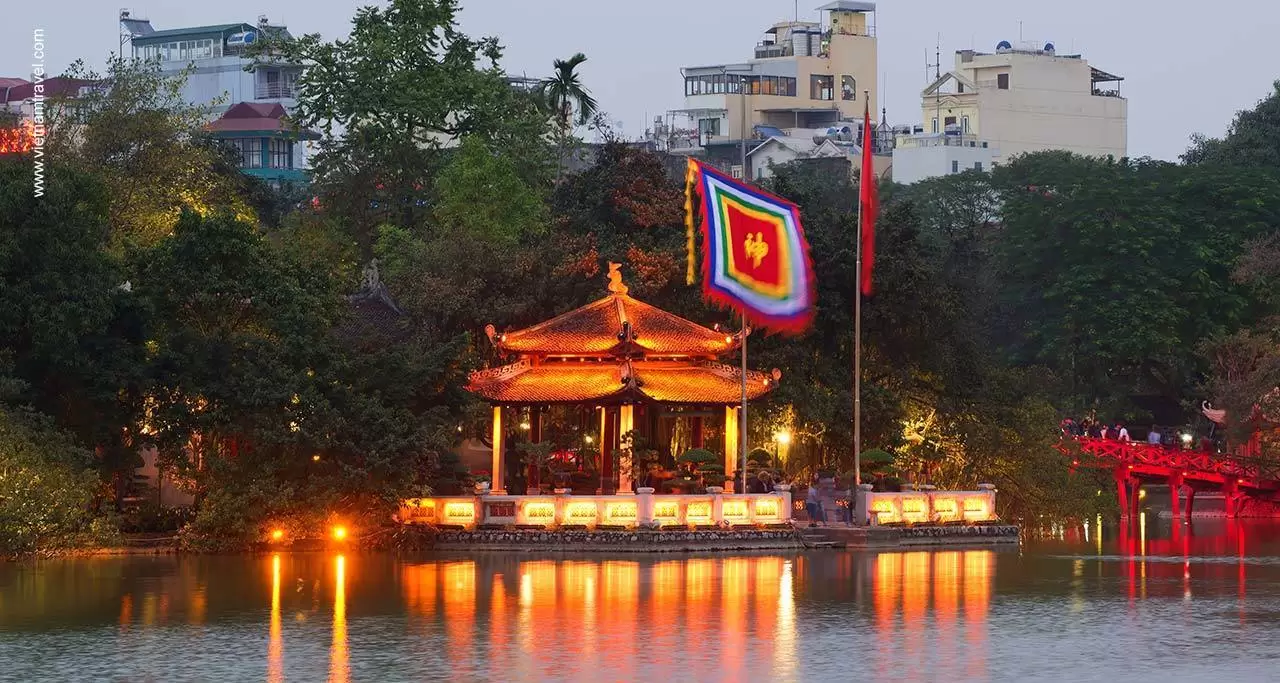
Ngoc Son Temple, Hanoi
Ngoc Son Temple translates to English “The Jade Mountain Temple” is located on a small islet on Hoan Kiem lake, Hanoi. The temple is dedicated to Confucian and Taoist philosophers and General Tran Hung Dao – a hero in Vietnam in Tran dynasty. Inside the temple, there is a dry remains of Old Turtle which related to the legend of Hoan Kiem Lake. Ngoc Son temple is connected to the Ten Shape Tower by a Red wooden bridge. It became one of the top tourist attraction in Hanoi.
5. Perfume Pagoda, Ha Tay, Hanoi
Perfume Pagoda (Chua Huong) lies in Huong Son commune, My Duc district, Hanoi (Former Ha Tay). The Pagoda is the site of a religious festival which draws large numbers of pilgrims up to 4 thousand a day during March. My personal experience, you should visit this temple in the rest of the year and avoid this festival time so the trip will be more relaxing in slow pace and you could enjoy the beauty of this sacred temple and the tranquility of a mountainous area which is only 90 minutes’ drive from Hanoi.
During the day trip to Perfume pagoda. You could take an hour of rowing sampan along Yen river to Ben Yen and visit Thien Tru pagoda. As a foreign traveler, you should skip Den Trinh (Reception Temple) which normally for local. Next you will continue your hiking to Tien Son cave and visit a temple inside the cave. Then continue to Huong Tich Pagoda. Another bigger Temple inside the cave with stalagmite and stalactite hanging from the ceilings. On the way out, you may stop to visit Giai Oan temple if your time is permitted otherwise you could go back straight to boat station for the trip back to your car parking.
The most beautiful part of the trip is the hiking to Huong Tich and the most beautiful temple of Huong compound is Thien Tru Pagoda. The current site of Thien Tru which existed during Le reign dated in 15th century. Legend claims that the site was discovered over 2000 years ago by a monk meditating in the area, who named the site after a Tibetan mountain where Lord Buddha practiced asceticism
Parts of the pagoda was destroying during Vietnam Wars and it was restored several times in 1986 and 1994. Vietnam Travel organize the day trip to Perfume pagoda, more information & the best deals, please contact their travel consultant.
Read more: https://vietnamtravel.com/perfume-pagoda/
6. But Thap Pagoda, Bac Ninh
But Thap Pagoda is a Buddhist temple located by the dyke of the Duong River in Bac Ninh Province just an hour drive from Hanoi.
The temple was built in the 13th century. The temple houses the biggest Buddha statue with a thousand eyes and a thousand arms. But Thap Temple is one of the most famous pagodas in Viet Nam. Inside, there are various valuable ancient objects and statues, which are considered to be Vietnamese masterpieces of 17th-century wood carving. During the same time the temple had become famous for the venerable abbot and Zen Buddhist master
The pagoda has 10 buildings spreading for 100 meters from the three-entrance gate to the bell-tower and back house. Inside the temple are more than 50 statues of different sizes including the Triad Buddha, Manjusri (Van Thu) on a blue lion and Samantabhadra (Pho Hien) on a white elephant. The most remarkable is the thousand-handed and thousand-eyed Guanyin, which is described as a sculptural masterpiece of Vietnam. The architecture, sculpture and decoration of the temple were exclusively confined to the 17th century, so it was the best intact and typical example of Vietnam’s classical Buddhist art. Travelers should visit But Thap Pagoda in the half day trip of Vietnam Travel or you will combine But Thap Pagoda with Dong Ho Village and Bat Trang Village in a day vicinity tour from Hanoi.
7. One Pillar Pagoda, Hanoi
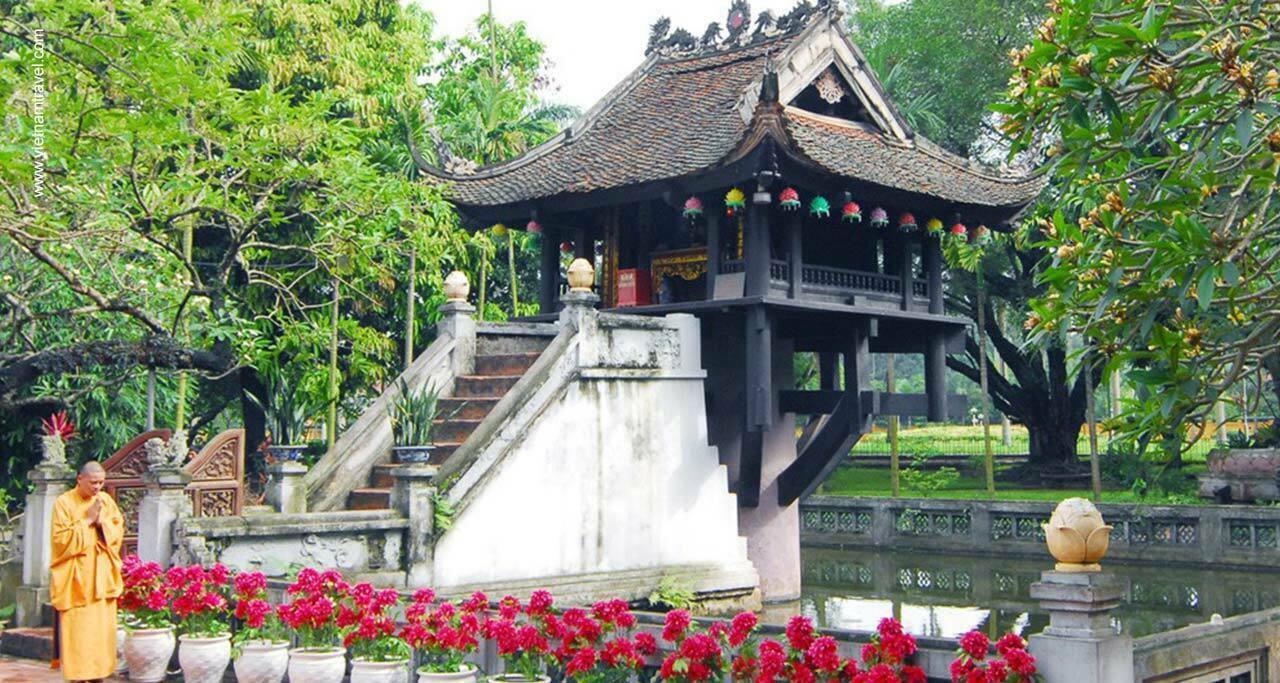
One Pillar Pagoda, Hanoi
The One Pillar Pagoda is located near HCM museum in Hanoi. The temple was built by Ly Emperor in 11th century. The pagoda has only One pillar as the shape of a lotus flower with a stem. The building related to the dream of Ly King who was granted a child from Buddha on lotus blossom. Later his dream come true and a Monk advise him to build pagoda with a pillar in the middle of a lotus pond, similar to the one he saw in the dream.
The temple was first built of wood on a single stone pillar 1.25 m in diameter and 4 m in height, and it is designed to resemble a lotus blossom, which is a Buddhist symbol of purity, since a lotus blossoms in a muddy pond. In 1954, the French Union forces destroyed the pagoda before withdrawing from Vietnam after the First Indochina War. It was restored afterward. One Pillar pagoda is one of the must see in Hanoi today.
8. Tran Temple in Nam Dinh
Tran Temple Complex is located in Nam Dinh province about 2-and-a-half-hour drive from Hanoi. The Temple is dedicated to national hero Tran Hung Dao who led Vietnamese fight off Northern evasion in 13th Century. Many local people visit Tran Temple after the TET. Traveler should visit Tran temple when you travel from Ninh Binh to Hai Phong or Halong Bay. A shot visit of 30 minutes to an hour is good enough to see the beautiful statues and sacred objects was displayed in these 3 nice buildings.
9. Bai Dinh pagoda, Ninh Binh
Bai Dinh Temple Spiritual and Cultural Complex is a complex of Buddhist temples on Bai Dinh Mountain in Ninh Binh Province, about 2-hour drive from Hanoi. The compound consists of the original old temple and a newly created larger temple. It is considered the largest complex of Buddhist temples in Vietnam and has become a popular site for Buddhist pilgrimages from across the country. You should combine the trip to Bai Dinh with visit to Hoa Lu ancient Citadel, Tam Coc or Cuc Phuong National park… which all located in Ninh Binh province.
10. Hung Temple, Phu Tho
Hung Temple is in Phong Chau District, Phu Tho province about 2 hour drive from Hanoi.
It is the most sacred of the historic sites by the Vietnamese. The complex consisting of several temples dedicated to the cult of Hung King – the first descendants the mythological founders of the Vietnamese.
Legend recounts that in his search for a site for his court, Hung King I traveled to 99 places but found none to his satisfaction. Upon reaching the village of Hy Cuong, The King’s mount abruptly stopped and whinnied. The king climbed the highest peak Mount Nghia Linh nearby where he scanned the four directions. It was then that he proclaimed the site as fitting of his capital.
The festival of Hung Temple is in April and it is National holidays in Vietnam. During the festival thousands of local people visit the Temple and pay respect to the King as the Ancestor of nation.
11. Thien Mu Pagoda, Hue
Thien Mu is iconic seven-story pagoda is regarded as the unofficial symbol of Hue. The pagoda sits on ha Khe hill about 5 km from central of Hue by the bank of Perfume river. Visitor could access Thien Mu pagoda by boat or by car.
Built in 1601, it was related to the dream of Nguyen Lord. According to the royal annals, First Nguyen Lord while traveling the vicinity, was told of the local legend in which an old lady, known as Thien Mu (in Vietnamese “Celestial Lady”), dressed in red and blue sat at the site, rubbing her cheeks. She foretold that a lord would come and erect a pagoda on the hill to pray for the country’s prosperity. She then vanished after making her prophecy. Upon hearing this, First Nguyen Lord ordered the construction of a temple at the site, so it became the pagoda we visit today. Thien Mu pagoda is one of the must see when you visit Hue City.
12. Truc Lam Zen Monastery
Truc Lam temple is a Zen Buddhist temple located on the top of Phuong Hoang hill in vicinity of Da Lat
Truc Lam bell tower is clearly seen from far distance. The tiled roof of the pagoda is also prominent, contrasting against the green of surrounding pine woods. The entrance of the temple is somewhat isolated, so there is a direct entrance to the temple with 61 steps or climbing, or the person can go directly past the Lake and then climb 222 steps past the triple gated entrance to enter the main courtyard in front of the temple. Truc Lam monastery is in the list of sites to visit in Da Lat.
13. Vinh Nghiem Pagoda, HCM City
Vinh Nghiem Pagoda is the biggest pagoda in HCM City. The pagoda covers an area of 6,000 square metres (65,000 sq ft) in District 3 about 30 minutes’ drive from city center. This is the first concrete built pagoda in Vietnamese traditional architecture with is the 7-story, 40-metre-high (130 ft) tower. This pagoda houses and worship of one Buddha and two bodhisattvas. In 1964, two monks originally from the North came South Vietnam from North Vietnam to spread Buddhism started the construction of Vinh Nghiem Pagoda. Nowadays, Vinh Nghiem pagoda is one of the must see in HCM City.
14. Cao Dai Temple, Tay Ninh
Cao Dai temple is headquartering of the newest religion in Vietnam. Caodaism is a monotheistic syncretic religion officially established in the city of Tay Ninh in 1926. Cao Dai Temple is 2-hour drive from HCM City. The 30 minutes celebration at noontime (Starts exactly at Noon time, so you should manage the time and don’t miss it). The symbol of the faith is the Left Eye of God, representing the yang (masculine, ordaining, positive and expansive) activity of the male creator, which is balanced by the yin activity of Mother Goddess, the Queen Mother of the West, the feminine, nurturing and restorative mother of humanity. Statistics in 2015. There are about 2.5 million Cao Dai followers. You should combine the visit to Cao Dai temple with Cu Chi tunnels in the full day trip from HCM City.
15. Ba Chua Xu Temple, An Giang
Ba Chua Xu Temple is located in Chai Doc city, An Giang province. Ba Chua Xu translated to Vietnamese is “Holy Mother of the Realm” is a prosperity goddess of southern Vietnam. She is a tutelary of business, health, and a protector of the Vietnamese border. She is considered prestigious and is worshipped in her temple in Vinh Te village at the foot of Sam Mountain about 5km from Chau Doc.
The festival at this temple last for 3 days is held in the village at the beginning of the rainy season, beginning on the twenty-third day of the fourth lunar month, in her honor. Travelers could reach to Ba Chua Xu Temple when you visit Chau Doc in the Vietnam & Cambodia Trip.
In Vietnamese, Temple is called ” Den” and Buddhist Temple where they worship Buddha is called ” Chua” or pagoda. When visiting these sites, you required appropriate dress and remove your shoes when entering the sanctuary to pay respects to the believe of Vietnamese people.


